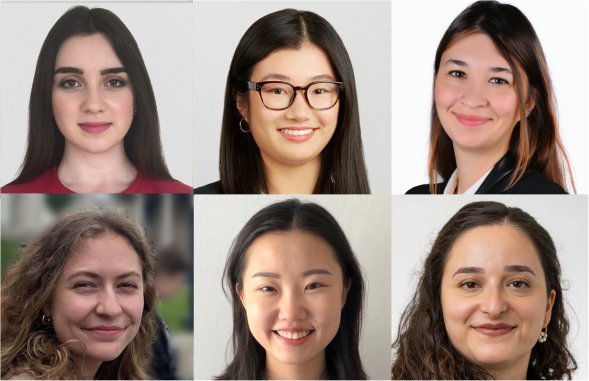LSE Law students submitted a third-party intervention before the European Court of Human Rights, explaining the importance of encryption and why states should not weaken it on messaging services.

[pictured top, from left to right: Marina Vladimirova; Helen Chen, Idil Gencosmanoglu; bottom row: Julia Laganowska, Li Qing, Ola Al Khatib]
The intervention was prepared in the case of Podchasov v Russia. Its main focus is to what extend the states of the Council of Europe, such as the United Kingdom, can weaken encryption on messaging services for the benefit of law enforcement. The brief was prepared by five LLM students (LSE ‘21) — Ola Al Khatib, Helen Chen, Idil Gencosmanoglu, Julia Laganowska, Marina Vladimirova, and Li Qing — as a part of the ECtHR Intervention Clinic supervised by Dr Husovec, Assistant Professor at LSE Law School.
The brief argues that mandating the installation of encryption backdoors for messaging services used by the general public, such as Telegram or WhatsApp, would violate privacy and freedom of expression safeguards of the European Convention of Human Rights. The backdoors affect all users of such services, not only those under ‘reasonable suspicion’. The weakening of cryptographic mechanisms increases the vulnerability of users and exposes them to risks of cybercrimes. Moreover, the backdoors cannot be justified by any paralysis of law enforcement operations because the authorities can and routinely do, investigate crimes and national security threats by conducting targeted surveillance, even if suspects use encryption.
“By pursuing enforcement in the name of public security, such backdoors weaken the tools of self-defence of the general public”, said Dr Husovec, summarizing the brief.
The full brief is available here. https://husovec.eu/wp-content/uploads/2021/10/Podchasov-v-Russia-Brief.pdf
Click here to read more about the ECtHR Clinic, an extra-curricular activity for LSE LLM students, run by Dr Husovec in collaboration with an NGO, the European Information Society Institute (EISi).